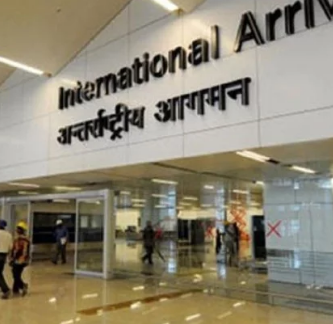DAINIK NATION BUREAU : The All India Institute of Medical Sciences (AIIMS) in Delhi is considering the implementation of a collegium system for the rotation of headship positions. The proposed move seeks to revolutionize the process of selecting department heads by involving a committee of senior faculty members. This development comes as AIIMS aims to enhance its leadership structure, promote academic excellence, and foster a culture of collective decision-making. In this article, we explore the potential benefits of the collegium system and its impact on the institution’s future.
Strengthening Leadership Diversity :
The collegium system brings together a group of experienced and respected faculty members from various departments to collectively decide on leadership appointments. By diversifying the decision-making process, AIIMS aims to ensure that headship positions are filled based on merit, experience, and a broad understanding of the institution’s needs. This move is likely to prevent any undue concentration of power in the hands of a few and foster a culture of transparency and accountability.
Promoting Meritocracy and Fairness :
Under the collegium system, the selection of department heads will be based on the candidates’ credentials, experience, and contributions to the field of medicine and academia. This shift toward a meritocratic approach aims to ensure that deserving candidates are recognized and given leadership roles, irrespective of personal affiliations or external influences. It will create a level playing field for all eligible faculty members, inspiring them to excel in their fields and contribute more effectively to the institution’s growth.
Fostering Academic Excellence :
AIIMS Delhi has earned a stellar reputation for its pioneering research, exceptional patient care, and quality medical education. By implementing a collegium system, the institution can further promote academic excellence and innovation. The collective decision-making process is likely to prioritize academic achievements, research contributions, and teaching excellence when selecting department heads. This will not only motivate the faculty members to continuously strive for excellence but also create an environment conducive to groundbreaking research and medical advancements.
Enhancing Institutional Stability :
Rotation of department heads through a collegium system can bring about a more stable leadership structure within AIIMS Delhi. With leadership positions changing periodically, fresh perspectives and ideas will continually infuse the administration. This adaptability will enable the institution to tackle emerging challenges effectively and evolve to meet the changing needs of medical education, research, and healthcare.
Building a Culture of Collaboration :
The collegium system emphasizes collaboration and consensus-building among faculty members. As they come together to select their department heads, it encourages open discussions, exchange of ideas, and mutual respect for differing viewpoints. This collaborative culture can permeate throughout the institution, promoting teamwork among faculty, researchers, and students, which, in turn, can lead to an environment of shared success and collective growth.
The potential implementation of a collegium system for the rotation of headship positions at AIIMS Delhi represents a progressive step toward promoting leadership diversity, academic excellence, and fairness within the institution. By involving senior faculty members in the decision-making process, AIIMS aims to ensure that its leadership remains dynamic, merit-based, and focused on enhancing medical education, research, and patient care.
If AIIMS proceeds with the collegium system, it could set a positive example for other institutions in India and beyond, inspiring them to adopt similar democratic and inclusive practices. As the country’s premier medical institute, AIIMS Delhi’s move towards a collegium-based leadership structure may prove instrumental in shaping the future of medical education, research, and healthcare in India.
 Dainik Nation News Portal
Dainik Nation News Portal


